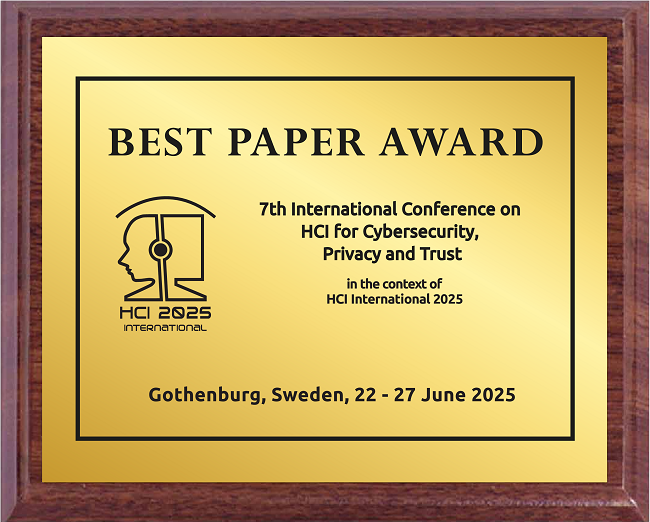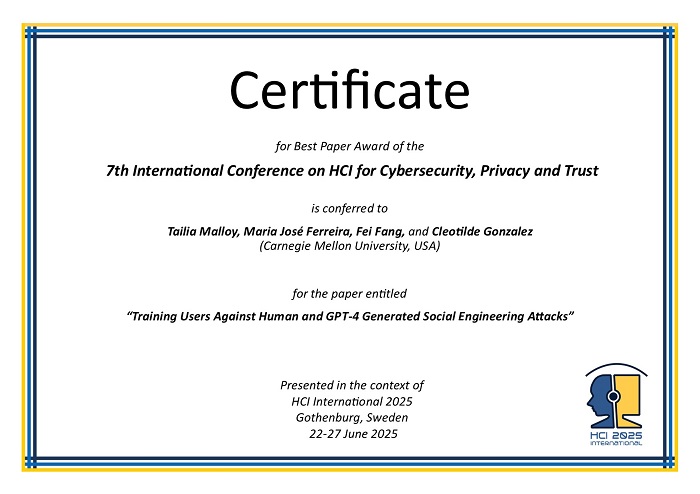The Best Paper Award of the 7th International Conference on HCI for Cybersecurity, Privacy and Trust
has been conferred to
Tailia Malloy, Maria Jose R Ferreira, Fei Fang, Cleotilde Gonzalez, (Carnegie Mellon University, United States)
for the paper entitled
"Training Users Against Human and GPT-4 Generated Social Engineering Attacks"

Tailia Malloy
(presenter)

Best Paper Award for the 7th International Conference on HCI for Cybersecurity, Privacy and Trust, in the context of HCI International 2025, Gothenburg, Sweden, 22 - 27 June 2025

Certificate for Best Paper Award of the 7th International Conference on HCI for Cybersecurity, Privacy and Trust presented in the context of HCI International 2025, Gothenburg, Sweden, 22 - 27 June 2025
Paper Abstract
Social engineering attacks such as phishing emails remain a critical method for cybercriminals to exploit sensitive data. Although the threat of AI-generated content in such attacks is growing, current training methods predominantly rely on simplistic human-designed emails. This research introduces a novel experimental paradigm to investigate differences in the detection of human-generated versus AI-generated phishing emails, as well as two different methods by which cyberattackers could use AI as a tool to generate phishing emails. Our behavioral results reveal that emails co-created by humans and Generative-AI models pose a greater challenge to end users compared to emails created by GPT-4 or Humans working alone. We also propose a cognitive model that predicts user behavior during training, which offers the potential to be used in future user training to improve training outcomes. Our work contributes by (1) identifying critical weaknesses in current social engineering training, (2) describing biases that human participants demonstrate when viewing GPT-4 written content in emails, and (3) proposing a cognitive model-driven solution to better train users against evolving threats.
The full paper is available through SpringerLink, provided that you have proper access rights.


